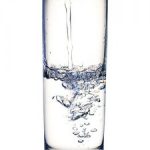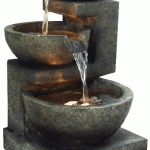 Water is a basic necessity which we all need to survive. If we decrease our liquid consumption then we will ultimately die. Our bodies are approximately two thirds water and when someone gets dehydrated, the amount of water in the body drops below the level required for the body to function normally.
Water is a basic necessity which we all need to survive. If we decrease our liquid consumption then we will ultimately die. Our bodies are approximately two thirds water and when someone gets dehydrated, the amount of water in the body drops below the level required for the body to function normally.
The main cause of dehydration is simply not drinking enough water to maintain healthy levels. A small decrease in water consumption doesn’t necessarily cause great problems straight away. However, when these decreases go completely unnoticed it can become a danger. Frequently we can all suffer from headaches, low blood pressure, fatigue, dizziness and dry skin and this is a direct result of not drinking enough water.
Severe drowsiness makes the body slow down. Without regular fluid intake, your brain experiences a reduction in energy its supply. When the brain is not able to function normally it loses its efficiency and causes fatigue. Low levels of brain activity can cause stress, anxiety and depression.
Headaches are believed to be a common by-product of dehydration. The body’s effort to maintain adequate fluid levels causes blood vessels to narrow thus reducing the oxygen and blood supply to the brain. Headaches are the result of the brain’s discomfort and this can be counteracted by increasing your consumption of water and water based foods.
Dehydration is a common cause of dizziness, particularly during exercise and hot weather. More effort needs to be made to remain hydrated as dizziness is an unpleasant disruption to daily life. Drinking the recommended eight glasses of water per day will help to avoid any occurrence of dizziness.
Losing large amounts of fluid can sometimes make you quite sick causing several serious long term problems. Dehydration plays a part in the onset of diabetes. Being dehydrated forces the brain to search for more fluid than the body has to offer, resulting in increasing levels of sugar. Diabetes is a serious illness and can lead to kidney failure and nerve damage.
There are proven links between dehydration and blood pressure disorders. Low levels of water consumption can contribute to low and high blood pressure. Low blood pressure affects levels of blood supply and high blood pressure leads to heart disease.
Muscle cramp and pain is partly caused by dehydration. The imbalance of fluid in the body’s system causes muscles to contract leading to considerable pain. Muscle pain can be treated but in some cases impairment can be long-term. Remember that it is crucial to stay hydrated to avoid severe, long term problems.
The easiest way to avoid dehydration is to drink lots of fluids. It is important to increase levels of water consumption as the body needs between 8 and 10 glasses of water per day. However, busy lifestyles often mean we sacrifice our daily water intake. Water coolers offer a great means to provide a regular source of water. They dispense water whenever you need it and are popular within offices, shopping center’s and homes.
Source:








